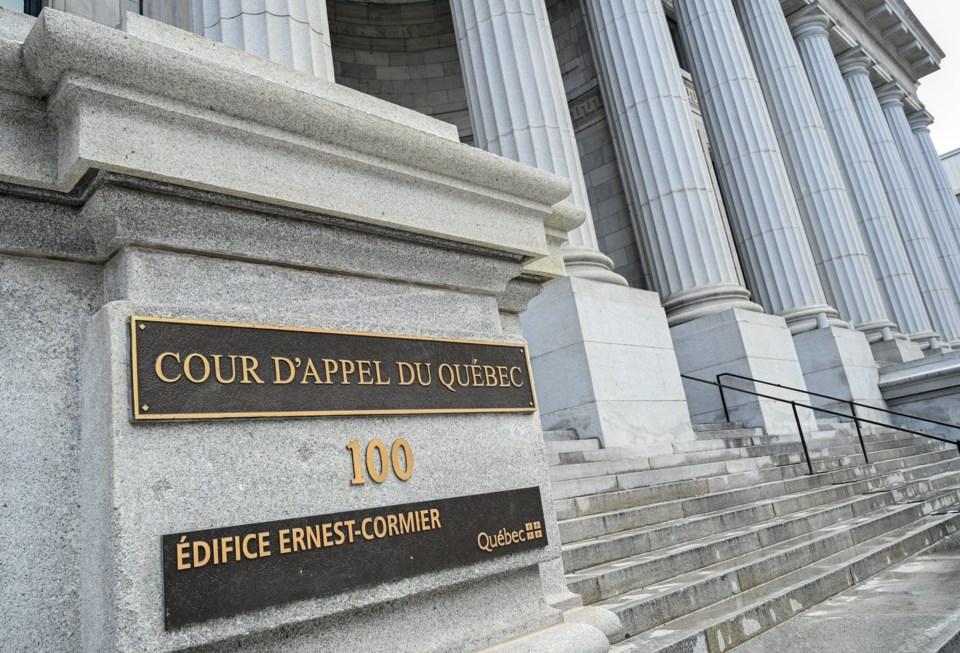MONTREAL — Quebec's Court of Appeal says a provincial court judge overstepped his jurisdiction when he ruled that part of the province's language law is unconstitutional.
In May 2024, Quebec court Judge Denis Galiatsatos raised a legal question on his own initiative while overseeing a case involving a woman charged with criminal negligence causing the death of a cyclist. The woman had sought a trial in English.
Galiatsatos took issue with a section of Quebec's language law that was scheduled to enter into effect in June of that year, a few days before the start of the trial. The law requires that a French translation of court decisions be made available "immediately and without delay."
The judge said at the time that the law would systematically delay English verdicts because of the French translation requirement. In a procedural ruling ahead of the trial, he declared the provision inoperable.
His ruling was overturned by the Court of Appeal in late May. In a written ruling dated Aug. 8 outlining its reasons, a three-justice panel unanimously agreed that Galiatsatos's actions in initiating the debate went beyond his jurisdiction.
"Perhaps there was room here for a proper constitutional debate on the applicability of the (law) in criminal matters. One can legitimately ask this," the high court ruled.
"But initiating, conducting and resolving this debate, unilaterally and in anticipation, as the judge attempted to do here, went far beyond the limits of his jurisdiction."
Following Galiatsatos's initial ruling, Quebec's attorney general took the matter before Superior Court for a judicial review, which was dismissed due to the absence of "harm to the public interest in the judge's ruling."
Quebec's attorney general then brought the matter before the Court of Appeal, which said, "the procedure followed here left too much to be desired" and that a judge alone cannot take it upon themselves to decide a matter in this way, using "pure hypotheses," a "deficient procedural framework" and absent the "illumination of a well-documented context."
If anyone chooses to challenge the constitutionality of the article in the future, it will have to be redone correctly, the court ruled.
Droits collectifs Québec, a Quebec civil liberties group, welcomed the ruling. The organization takes up cases of French language rights, notably in the push to get the Supreme Court of Canada to translate unilingual English rulings delivered before 1970, when decisions started to be systemically translated under the Official Languages Act.
In the group's opinion, the move by the judge "amounted to nothing less than an activist judicial refusal to respect not only the French language charter, but also the foundations of the principle of judicial impartiality and independence by taking up the question of the constitutional validity of the charter on its own."
French Language Minister Jean-François Roberge said Thursday the government welcomes the Court of Appeal ruling and sends a clear message.
"Whenever the charter is attacked or violated, we will defend it," Roberge said on X. "The future of the French language and our nation depend on it."
This report by The Canadian Press was first published Aug. 14, 2025.
Sidhartha Banerjee, The Canadian Press




